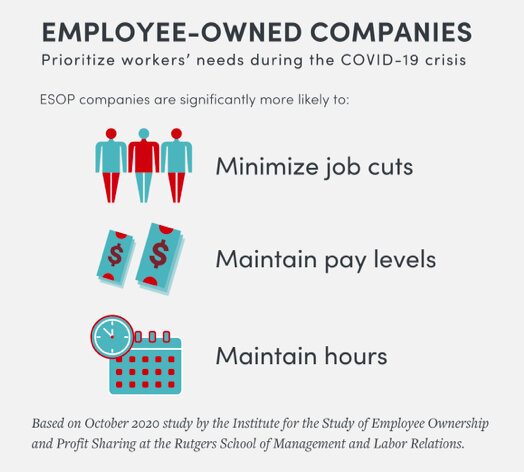
Our colleague Leila Roberts, Director of North Coast Small Business Development Center, recently penned the following thought-provoking article that was published in the February 28, 2021 edition of Eureka’s Times Standard newspaper. Thanks Leila!
Before the pandemic arrived, did you ever wonder what was going to happen to your favorite local business when the owners retire? What about the workers in those businesses? Have you lost a favorite neighborhood place? One year into a pandemic-fueled recession, are you wondering what our main streets are going to look like when this crisis is past?
We were already in a business succession crisis before the pandemic. Half of all employers nationwide are small businesses owned by “Baby Boomers†approaching or past retirement age. In communities like ours (the rural county that’s home to Bellingham, Washington) small businesses founded more than 20 years ago account for 63% of revenue and 40% of jobs. In 2004, the Small Business Administration reported that only 15% of family businesses were going to the next generation, and only 20% were getting sold to a new owner at all. The rest were just getting liquidated.
A year into a global pandemic, the situation seems dire. It’s tough to confirm exact numbers yet but it looks like, “As of early November, more than 30% of California’s small businesses remained closed. Thousands of small businesses have shut-down permanently.†(From “First Steps toward Recovery: Saving Small Businesses†December 2020 report #254 from California’s Little Hoover Commission.)
At the same time, economic recessions can actually be a boom time for start-ups. More than half of Fortune 500 companies were launched during a downturn. At the North Coast Small Business Development Center, we targeted most of our 2020 efforts to help established businesses trying to survive the pandemic, and yet still also saw only a 12% drop in start-up help requests compared to 2019.
So: Many owners are struggling to exit, new entrepreneurs are eager to start, and employees are working hard to keep their jobs or find new ones. What sits squarely in the middle of all that activity? Worker ownership.
Two years ago we learned three things:
-
Congress passed the bipartisan 2018 Main Street Employee Ownership Act. It instructed federally-funded small business support agencies like ours to help owners start and convert to employee-owned enterprises.
-
Employee-owned enterprises report 8.5% higher profit margins and 2.5% higher growth year after year. Employee-stock owners engage more, report twice as much household net worth, and stay 50% longer.
-
Of six dozen seasoned Humboldt business owners, 20% said in a survey that “selling or transferring business to a group of worker-owners†was their top or only exit preference, and an additional 42% said they were considering this option and wanted more information. These survey respondents represented local enterprises worth at least $14 million whose owners were looking for expert guidance for their exit strategy.
Since then, 10 local businesses have worked on converting to employee ownership in the past two years. Another eight potential new worker-owned cooperatives have begun their path to start-up in the past month alone. Our national partner Project Equity’s Employee Ownership Conversion Program and local partner Cooperation Humboldt’s Worker-Owned Cooperative Program have provided 270+ hours of business consulting and training on worker ownership alone in the past couple of years. This is a building wave, and it’s good for us.
What can you do?
Ask your city or county to support employee ownership conversion the way the cities of Bellingham, Washington; Santa Clara; Berkeley; Long Beach, California; New York City and others are doing.
Join the next Introduction to Worker Ownership event to learn if this is right for you. northcoastsbdc.org/worker-owned.
Ask me to set up a no-cost feasibility consultation for you to see if selling your business to your employees is a good option for your exit.
Two years ago, David Hincapie of the Small Business Administration said, “Democratic ownership is good for small businesses; the businesses are more resilient, the jobs are better, and the workers are more committed. If we can grow this sector, we can build an economy that is more equitable and stronger — one that is not so vulnerable as we were when the Great Recession hit in 2008.â€

